, . , 24 , 1 . , 7,5° , . , , .
24, — . , , : +13 +14 .
— , , 60°, : , , . , . , , , - ( ) .
, . (, , ) XIX . — , , . .
How did it happen that people made life difficult for themselves and, as it were, the initially correct idea was brought to the point of absurdity in some countries?
Of course, the unification of time across the planet is correct. The planet from previously disparate pieces is becoming more and more integral. Yes, there are still nation-states, but the economy itself, population migration has become global.
However, let's see if the current time unification solution that exists on the planet is the best solution?
As before, people around the world have problems - from everyday life and workers to technical problems. Confusion over time continues to be difficult for people who travel between different time zones, do business in different time zones. And the support of the infrastructure for servicing the current model of unified time is complicated by the presence of various zones, transitions between them, as well as the transition to summer and winter time. Who, if not us, programmers, know all about this ?
More clearly about the complexity of the modern concept of dividing the planet into time zones can be seen in these images:
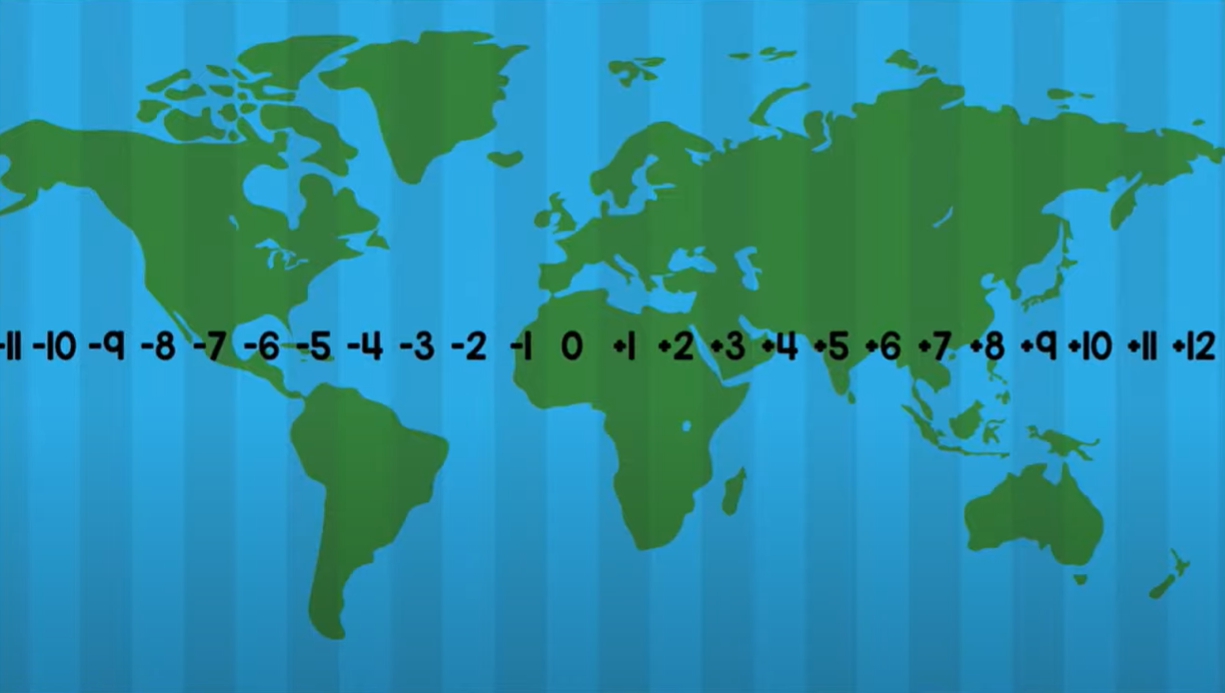
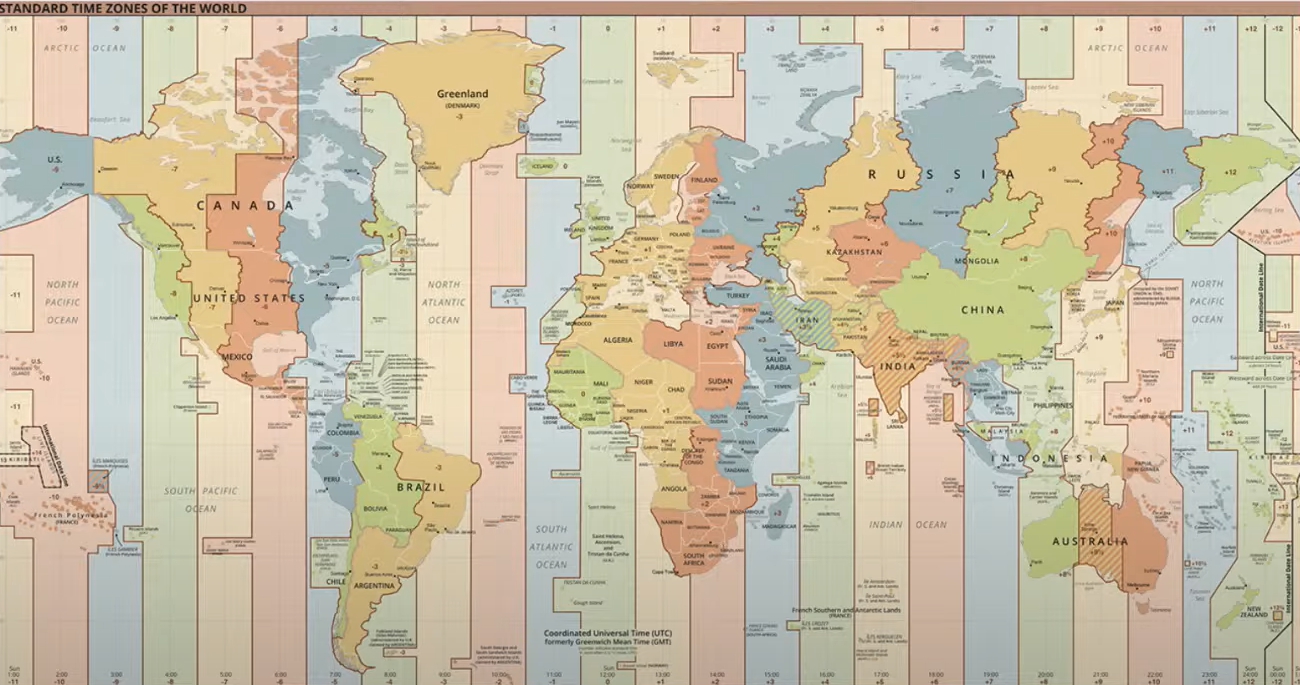
As we can see, almost all of Europe lives in one time zone. That is, this is a political decision, not a strictly theoretical division into zones.
But already moving from Poland to neighboring Belarus, we will have to move the clock not by 1, but immediately 2 hours ahead.
There is a more interesting example in the Samoa islands, which missed December 30 in 2011 to be closer in time to Australia. Thus, for political reasons, creating a 24-hour difference with the neighboring islands of American Samoa.
But that's not all the complications. You might not know, but India, Sri Lanka, Iran, Afghanistan, and Myanmar use the half hour offset from UTC, and Nepal is the only country that uses the 45 minute offset.
But the oddities don't end there. In addition to these 7 states, time zones go from +14 to -12.
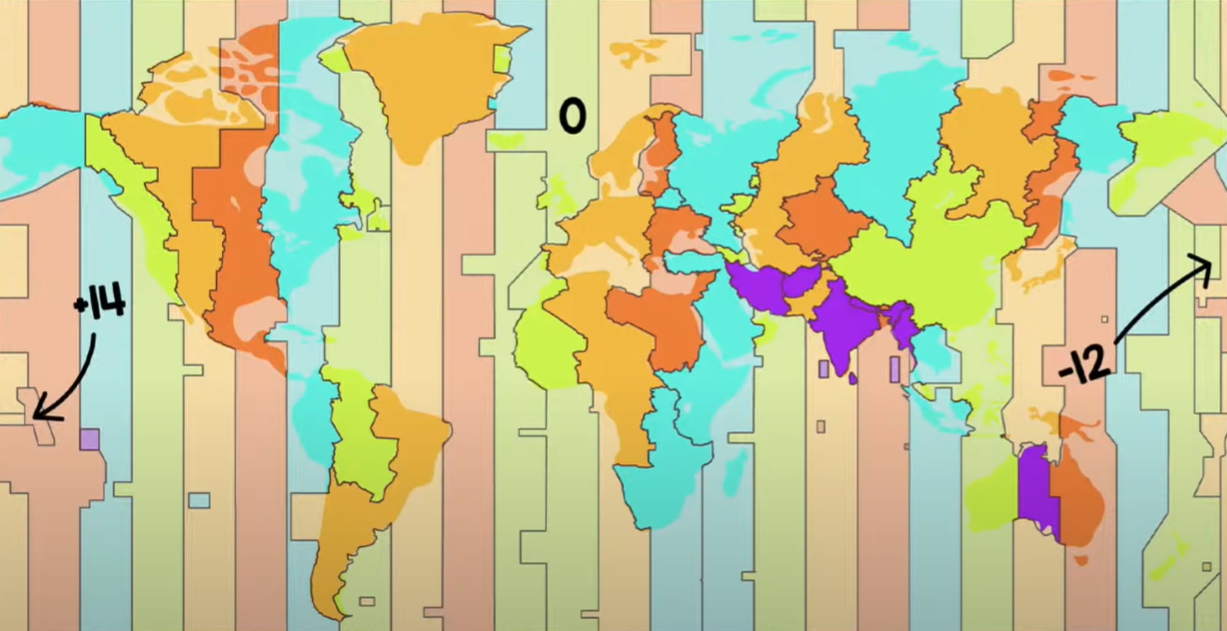
And that is not all. The time zones are named. For example, "standard European", "Atlantic". There are more than 200 such names in total (it's time to exclaim - "Karl !!!").
At the same time, we are not yet touching on the problem of SELECTED transition of countries to summer time.
Immediately the question is - is it possible to do something, is there any solution?
As often happens in such cases, it is enough just to go beyond the usual perception of the world for a solution to be found - why don't we go further in unifying the time around the planet and abolish time zones altogether?
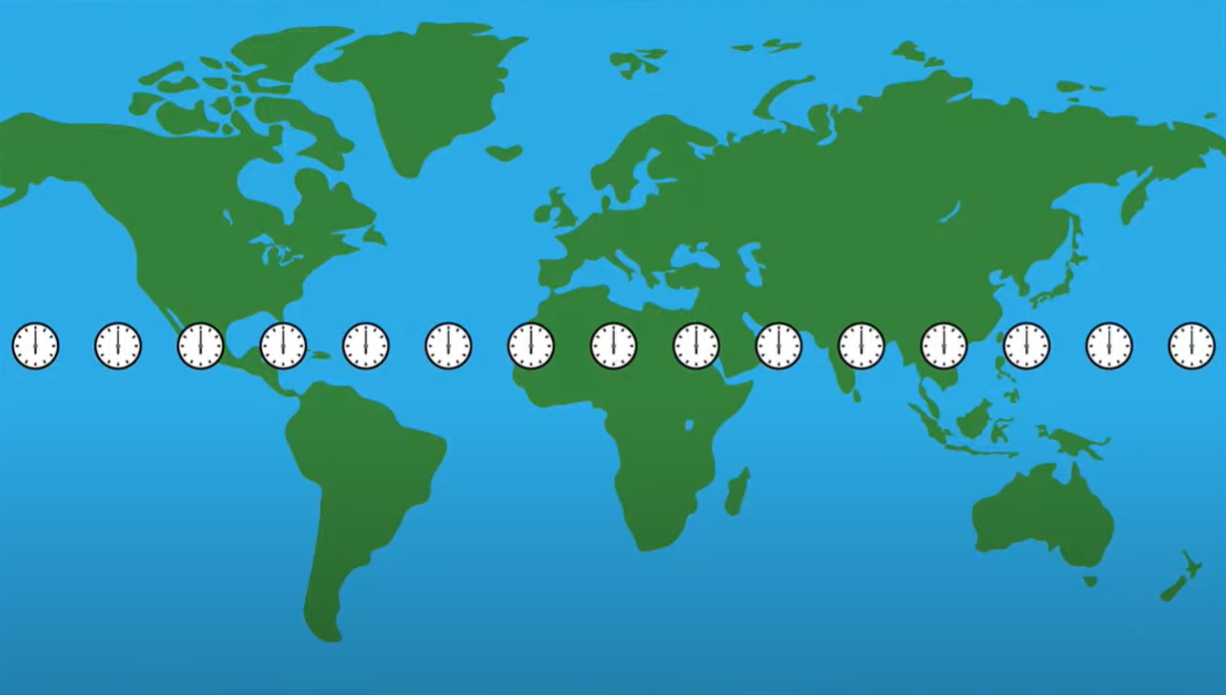
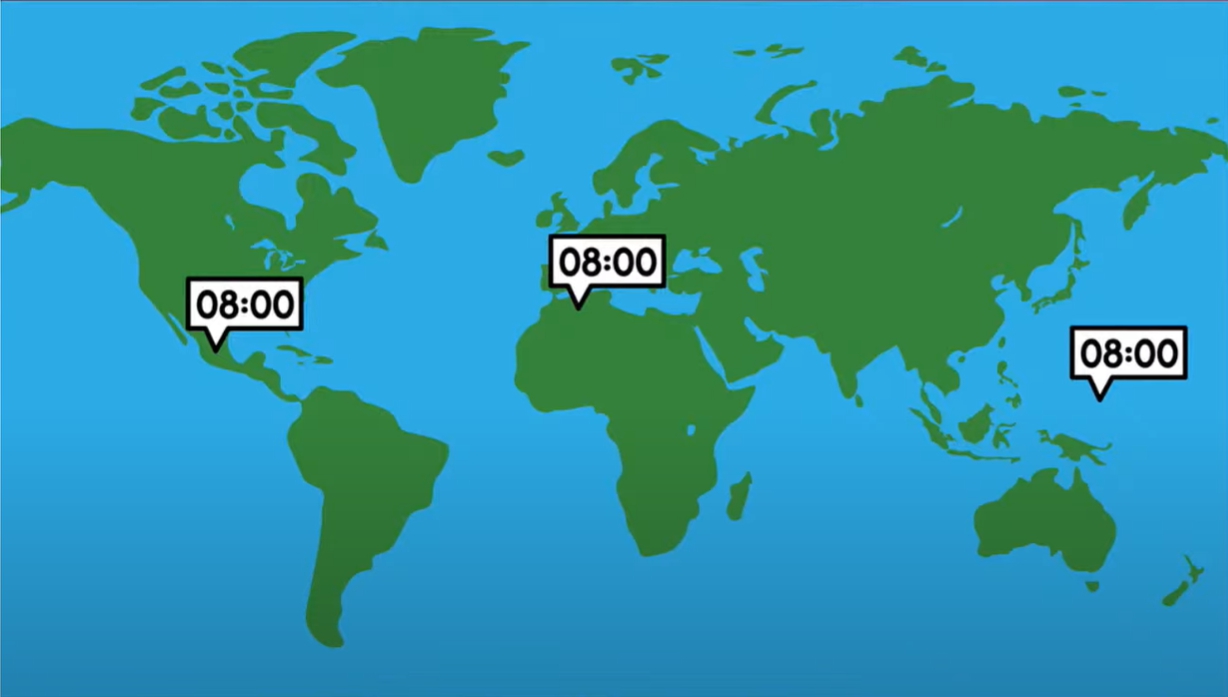
That is, the planet continues to focus on Greenwich, but at the same time everyone lives in the same time (in the same time zone). Let's say that in Moscow the working hours will be from 11:00 to 20:00 (GMT). In London - from 10 am to 7 pm. Etc.
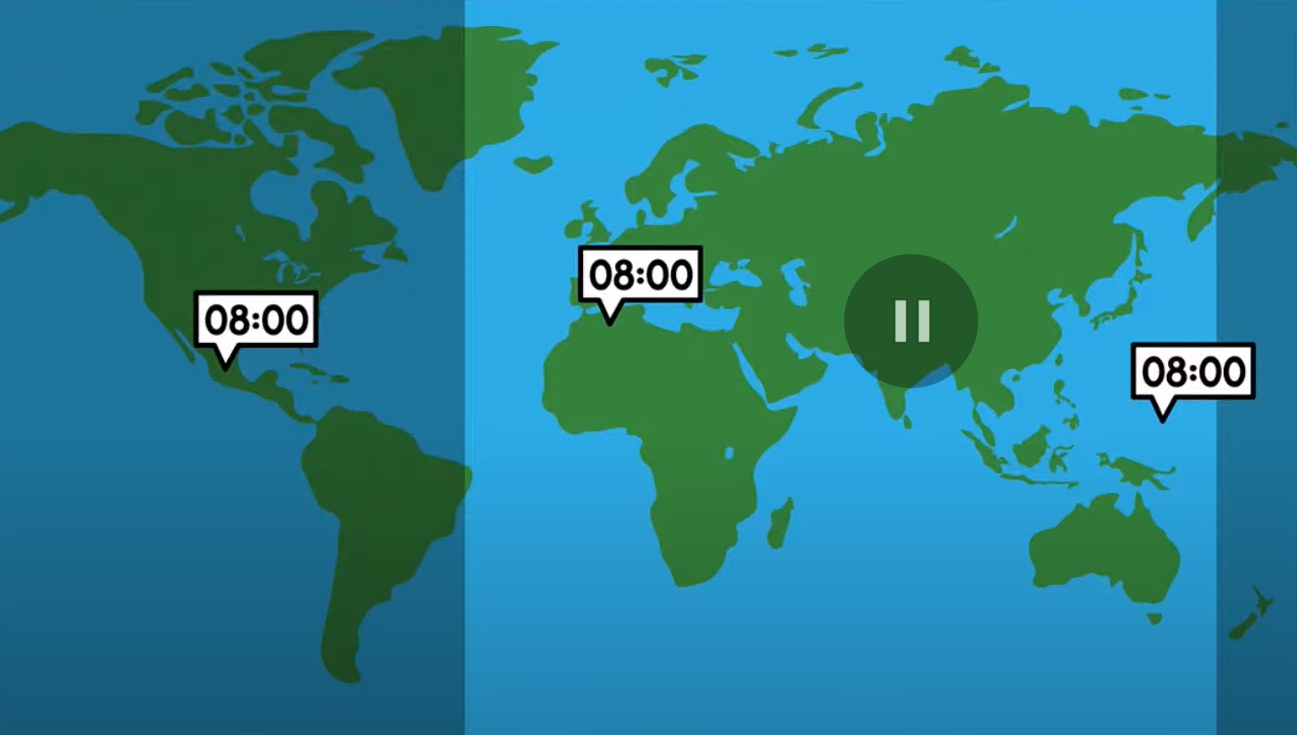
What is the difference in essence what numbers will be on the clock? In fact, it's just an indicator! After all, these are conventions.

For example, a developer from Moscow can easily agree with a team from the Valley about a call - 15:00 GMT (at this time, the developer from Moscow knows that it is light now, and the team from the Valley is still working). Let's say this example is not expressive, since we, developers working in different time zones, are used to translating the time. But for the economy itself, isn't it more profitable to switch to such a unified time? How many software bugs will go away? How many man-hours of software developers will we cut? How much energy will be saved due to unnecessary miscalculations of different times? Countries will not need to make life difficult for their citizens with such strange hour offsets like +14, +13, +3/4 from Greenwich? How much easier will life be for everyone?
A common question: can such a system work?
Answer: She is already working in China. (and almost all of Europe is in one belt, as mentioned above).
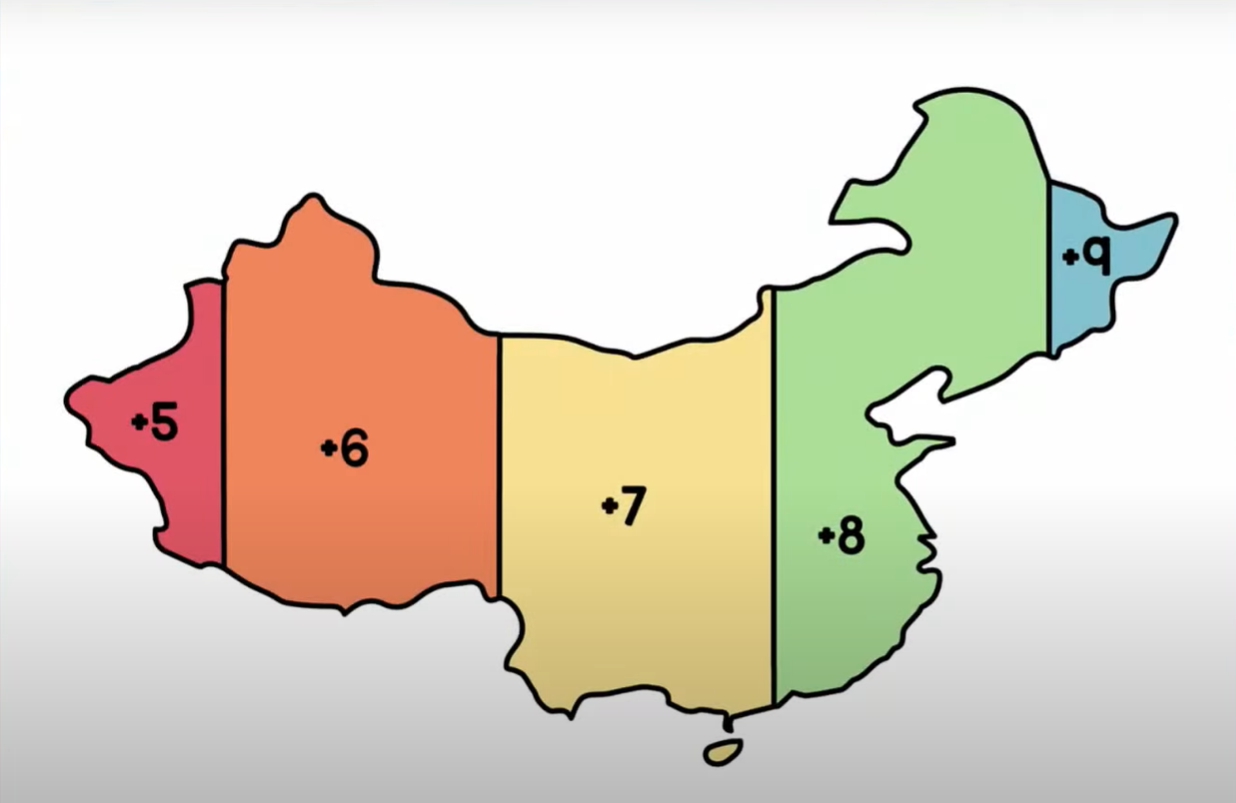
The territory of China stretches across 5 time zones, but China has been living on the same time since 1949. It's just that people in the cities have shifted their schedule.
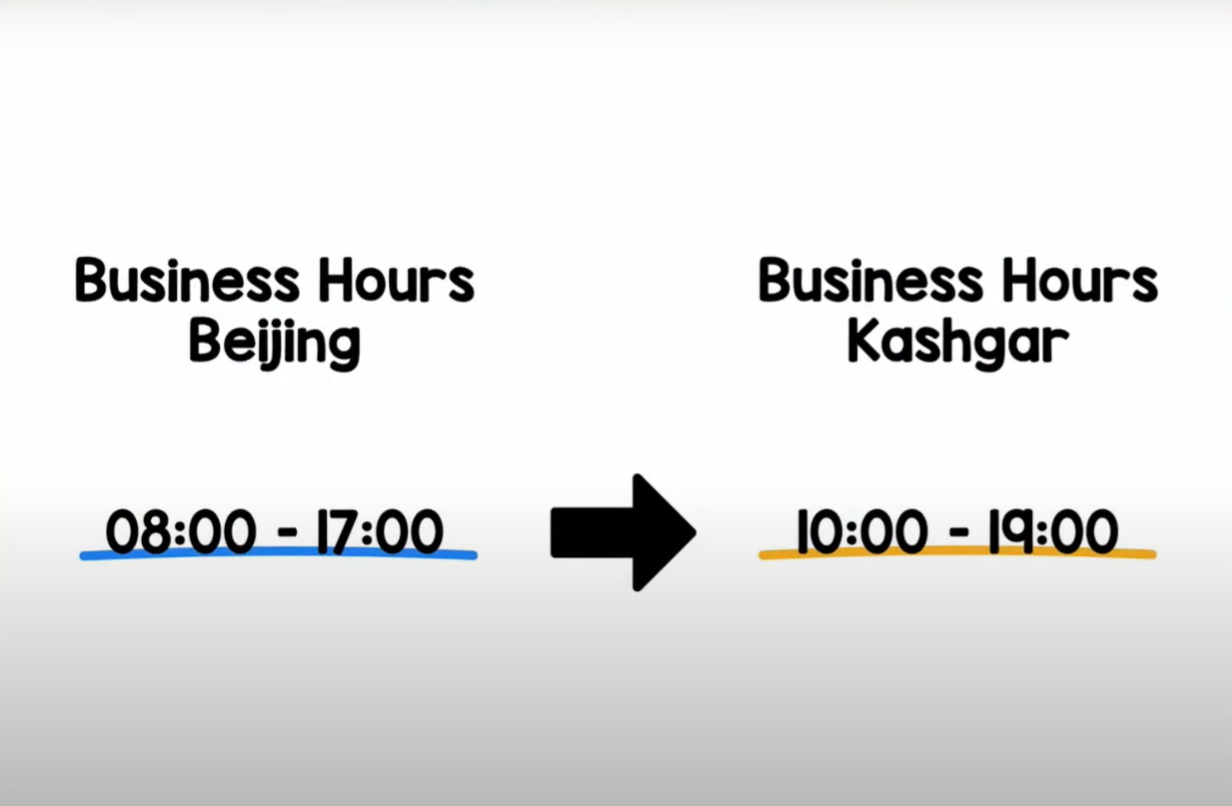
PS When writing this article, materials from Wikipedia were used , the article " Understanding time zones. Instructions for safe work with time ", analytical report " Artificial consciousness of Jackie. Features, threats and prospects ", the international conference "The Unknown History of Atlantis: Secrets and Cause of Death. Kaleidoscope of facts. Issue 2 "